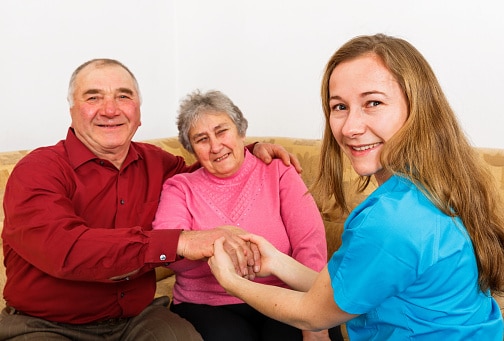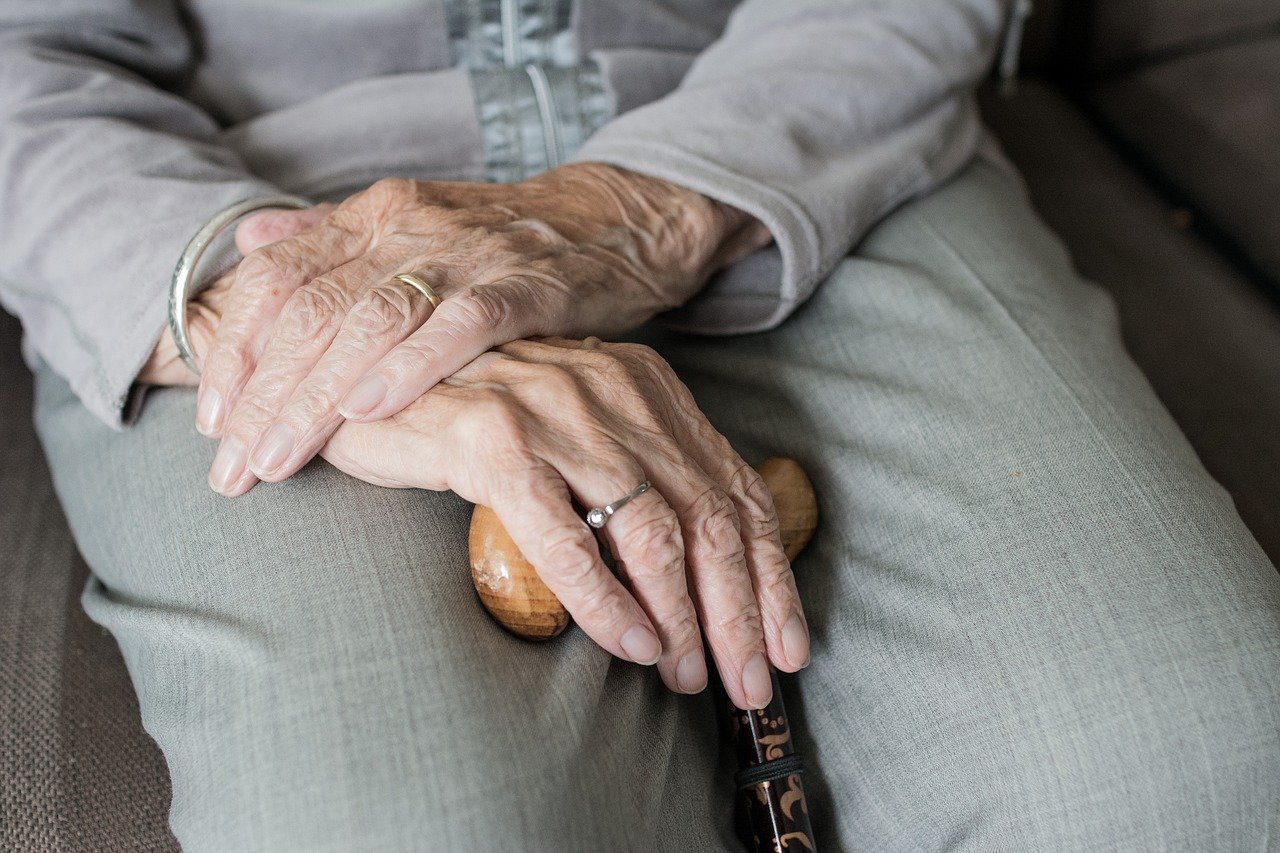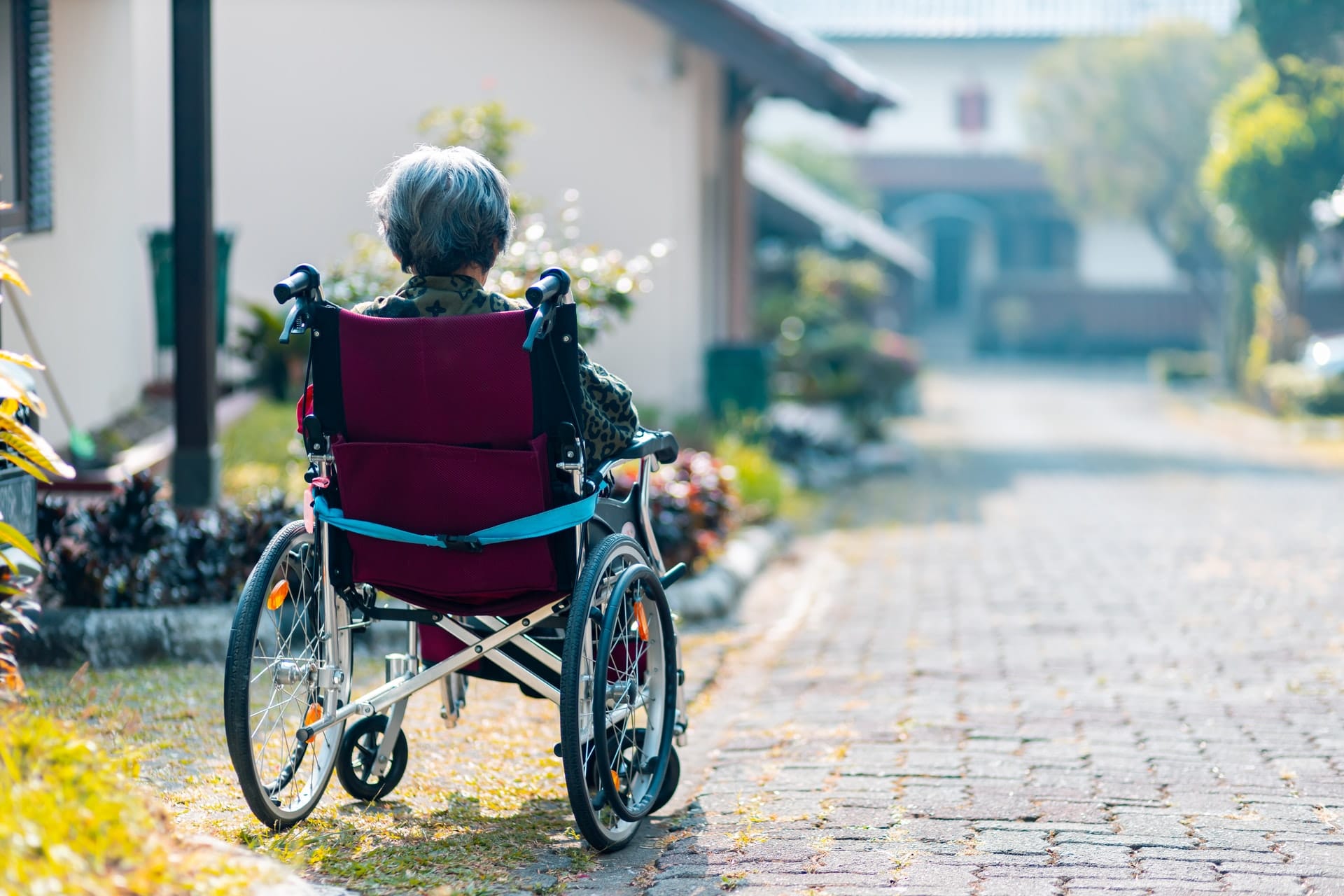
All About Adult Day Care: Community and Costs
Adult day care is a fairly new concept for caregivers. The basic idea is to provide a secure place where seniors can enjoy social activities during the day and be provided nursing care as needed. It’s a hybrid model of eldercare that prioritizes community. At the same time, seniors get help with common custodial tasks such as taking medication or having meals.
Unlike nursing homes or assisted living, adult day care is not 24/7. Seniors must still live independently or with family. This daytime-only care is cost-effective and a great option for families who want to prevent loneliness and decline in their elderly loved ones.
What is adult day care?
Adult day care (also known as community care) is a care option that provides recreational and medical services during daytime hours. Like child day care, it runs from Monday-Friday so that caregivers have a respite to work or take a break.
What types of adult day care are available?
This care can be categorized into three different types – social, medical, and other. Each has its own focus, depending on the needs of the adults.
Social
The social and recreational aspects of this care can’t be overestimated. Here are some typical features and activities:
- Social activities: arts and crafts, music, games, gentle exercise, discussion groups, holiday recreation, and local outings.
- Meals: nutrition, special diets, and snacks.
- Personal care: grooming, toileting, walking, and feeding.
- Health services: medication dispensing, blood pressure monitoring, hearing and vision screening, symptom management, therapeutic services (physical, occupational or speech therapy), etc.
- Caregiver support: counseling, support groups, care planning, and caregiving education.
- Transportation: as needed.
Medical
Medical care is also vital for many attendees. Some common nursing tasks performed may include:
- Vital sign tracking
- Physical, occupational and speech therapy
- Podiatry services
- Mobile dentistry
- Therapeutic services
Other
In addition, some of these adult day care centers have a customized care plan, such as:
- Dementia-specific: Social and health services specifically for seniors with Alzheimer’s or dementia.
- Transitional: Specifically for those who need short-term care after a hospital stay. As they recover, they receive physical therapy and recreational activities.
- Palliative: In this case, seniors get relief from side effects of illness by incorporating wellness activities. It’s considered complementary to specialized medical care.
What are the benefits of adult day care?
Adult daycare is an enriching and cost-effective care option to boost an adult’s social life during daytime hours. It also provides nursing supervision as needed. Benefits of adult daycare include:
- Reduce isolation, boredom, and loneliness through social activities
- Maintain independence and build friendships
- Prevent physical and mental decline (by stimulating social life, improving quality of sleep, boosting self-esteem, etc.)
- Give caregivers peace of mind with daytime supervision
- Provide much-needed breaks for caregivers
Who is a good candidate?
The profile for adult day care is slightly different from nursing home or assisted living care. Your elderly loved one may enjoy it if they:
- Feel lonely or isolated at home and would benefit from social interaction
- Finds it difficult to structure daily activities
- Doesn’t require 24-hour medical supervision
- Is mobile and continent (i.e. can participate in activities with some assistance)
- May not feel safe or comfortable being on their own
How does adult day care compare to assisted living?
Adult day care is distinct from other care options. First and foremost, it’s not 24/7 care like assisted living. This makes it a great option for seniors who want to maintain a level of independence and live at home. For this same reason, it isn’t right for those with serious medical conditions.
Those who live in assisted living need constant custodial care such as toileting and feeding. They may not be able to live alone or with family because of an inability to take care of daily tasks. Adult day care is catered towards adults who have the basics down, but could use some nursing supervision during the day or social interaction to prevent loneliness at home.
What is the experience like?
Seniors who go to adult day care generally love it. It’s the perfect balance between living independently or with family, and having activities to do during the day. Many find lasting friendships and a sense of purpose by attending a community center. When family members go to work or school, seniors have their own space and activities to enjoy.
This care is also great for family relationships, as caregivers don’t feel overburdened by 24/7 care. Instead, they can focus on nights and weekends to create meaningful moments.
Should I be worried about COVID?
Like all nursing care during the pandemic, it’s important to understand COVID protocols. Because adult day care isn’t 24/7, there may be requirements to use a face mask or maintain social distancing. You should contact your center to get a better sense of how they’re protecting seniors during care hours.
How much does it cost?
According to the U.S. Administration on Aging, the national average cost of adult day care is $64/day. This cost varies greatly depending on your location, facility, level of services, and insurance reimbursement. Generally speaking, the final cost ranges between $25-$100/day.
This is by far one of the most affordable care options for the elderly. While nursing home or assisted living can cost up to $5,000/month, adult day care is much more cost-effective. Often, these centers have several payment options, including paying per hour if you use less than a full day.
How can I pay?
You have a few options to pay for adult day care. While Medicare doesn’t typically cover this type of care, you may be eligible for programs such as PACE and Medicaid. Your private insurance may also cover costs.
- PACE (Program of All-Inclusive Care for the Elderly): PACE is an excellent program for individuals 55 or older who require long-term care. PACE requires a certification of required care in order to enroll (as well as living in a PACE service area). If eligible, this program covers a significant portion of the costs.
- Medicaid: Medicaid may provide health insurance coverage for adult day care programs. To be eligible, you must require long-term medical care, earn a low income and be over the age of 65 (or be disabled at any age).
- Medicare: Medicare doesn’t typically cover adult day care.
- Private insurance: Check with your insurance provider to find out whether adult day care is covered. Insurance coverage varies greatly depending on your plan.
How else can I pay?
You may also be able to pay for adult day care in other ways, such as:
- Long-term care insurance
- Life-insurance policy
- Employer-provided assistance
- Veterans benefits
As always, you should check your eligibility and coverage. Contact your providers to find how you can leverage these alternatives to help pay for adult day care.
Why should I choose adult day care?
Adult day care may be the perfect choice for your family. If your elderly loved one is at risk of becoming lonely or needs some extra supervision during the day, this may be the right option. For adults who like to keep their independence or live with family, this is a good compromise between staying active and feeling comfortable at home.
How can I find the right adult day care?
My Caring Plan has a large directory of adult day care centers across the country. Our website is full of top resources for elder care in the U.S. You’ll also find resources related to senior housing, insurance and other relevant topics.
Finally, you should visit adult day care centers to get a feel for what they’re like. You might be surprised by the upbeat feel and community you witness firsthand.
Sources:
- Eldercare Locator, Administration on Aging, eldercare.acl.gov
- Adult Day Care, AARP, www.aarp.org
- Adult Day Care Services, Help Guide, www.helpguide.org
Related Articles

When Is It Time for Assisted Living?
Wondering if it is time for assisted living for your loved one is a common question for caregivers. As a caregiver, you might have been considering the question for months or possibly even years. Your loved one might have declined to continue the discussion as the thought of moving out of their family home and […]

All About Adult Day Care: Community and Costs
Adult day care is a fairly new concept for caregivers. The basic idea is to provide a secure place where seniors can enjoy social activities during the day and be provided nursing care as needed. It’s a hybrid model of eldercare that prioritizes community. At the same time, seniors get help with common custodial tasks […]

An Overview of Senior Rehabilitation Centers
Recovering from injury or illness in your golden years may take time and support. That’s where senior rehabilitation centers become essential. If you need a temporary stay to recover from injury or illness, senior rehabilitation centers can be the solution to get expert care and daily support. In this article, we’ll give you an overview […]

A Caregiver’s Guide to ADLs and IADLs
This article has been medically reviewed by Dr. Martin Duggan in 2021. This content is not intended to be a substitute for professional medical advice, diagnosis, or treatment. Always seek the advice of your physician or another qualified health provider with any questions you may have regarding a medical condition. As a family caregiver, your […]

What is a Mechanical Soft Diet? Explanation, Preparation, and Meal Ideas
This article has been medically reviewed by Dr. Martin Duggan in 2021. This content is not intended to be a substitute for professional medical advice, diagnosis, or treatment. Always seek the advice of your physician or another qualified health provider with any questions you may have regarding a medical condition. As a caregiver, you may […]

Benefits for Seniors with Disabilities
Oftentimes, seniors with disabilities qualify for health and financial assistance programs. However, they may be unaware of them or are confused about the eligibility requirements and enrollment process. Let’s go over the key programs for seniors with disabilities so that you have the information you need to get the benefits you deserve. Note on the 3 […]